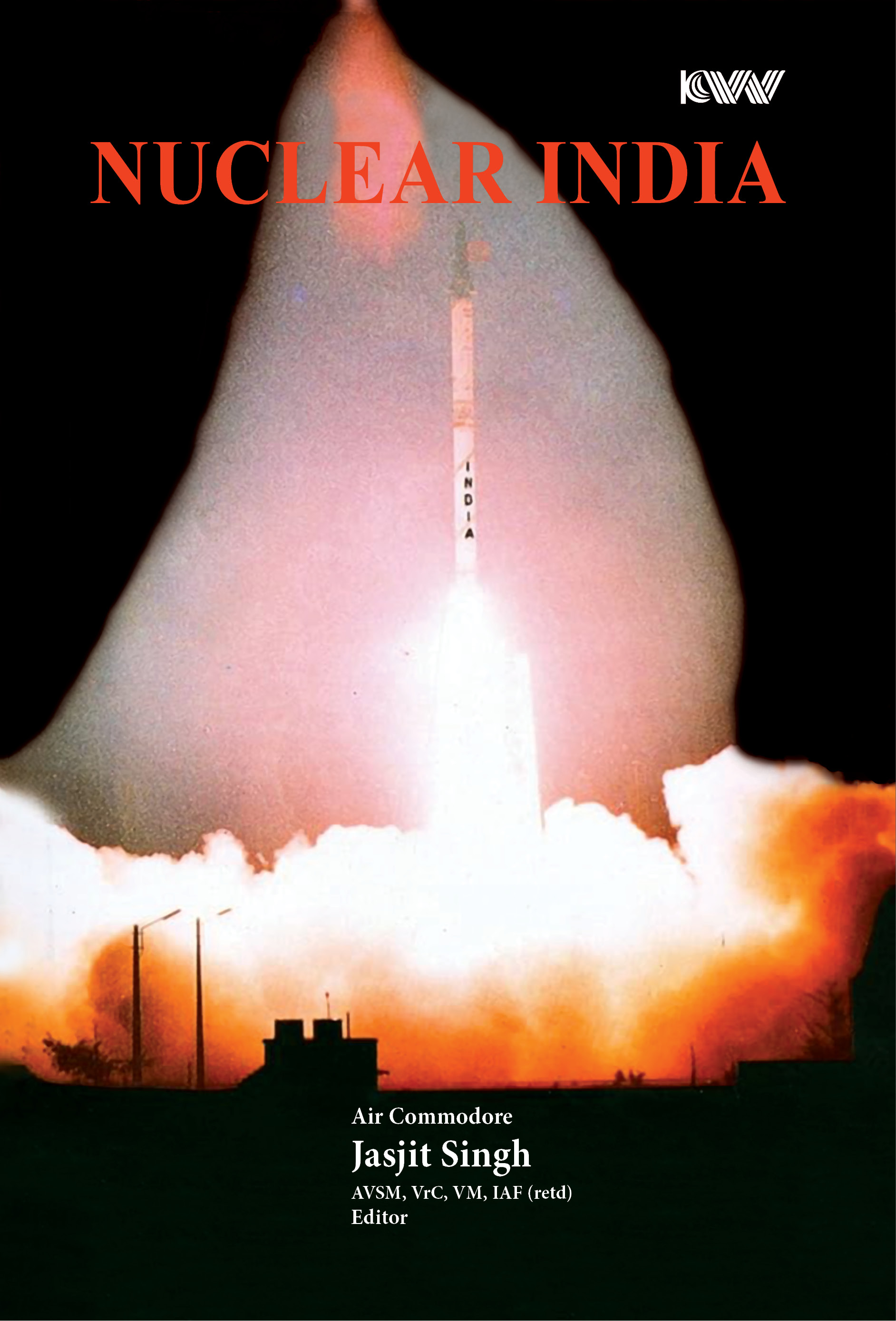Subjects
NUCLEAR INDIA
Editor: Air Commodore Jasjit Singh AVSM, VrC, VM, IAF (retd)
India’s nuclear tests on May 11-13, 1998 ended the country’s three-decade old self-imposed restraint on its emergence as a nuclear power. India also announced that it was now a nuclear weapon state. A new phase in India’s security calculus, therefore has begun. India’s nuclear policy is five decades old, but the policies of a nuclear India starts now.
At the national level, the tests have necessitated the articulation of a more unambiguous policy for India as a nuclear weapon state. The country has now to swell upon the doctrine and strategy for an affordable credible deterrence, and to put into place necessary command and control systems that minimize the risk of nuclear exchange caused by accident or miscalculation.
India’s tests and the decision to go nuclear were conditioned by the shift from disarmament to non-proliferation and the constriction of the non-proliferation order. India has to break out of this tightening stranglehold which threatened to squeeze the open option into irrelevance. At the regional level, the Indian tests were triggered by increasing evidence and extent of nuclear and missile proliferation that has long existed in the region. Strategic cooperation between weapon states at one level, and China and Pakistan at the other, created a matrix with deeply negative, implications for India’s security. By going nuclear India seeks to reshape a strategic environment, remove the adverse asymmetry that has been growing, and put in place capabilities to deal with strategic uncertainties in a world in transition in order to protect its security and vital interests.
This volume attempts to explore and explain the whole range of these issues in order to extrapolate logical policy positions that the country would need to evolve at various levels. The complexities accompanying India’s emergence as a nuclear weapon state have been examined from various angles in an effort to build a complete picture. The comprehensive content and in-depth analysis in the book, appearing so soon after the momentous developments, presents a timely study on an issue of national and international importance.


 Political Science
Political Science
